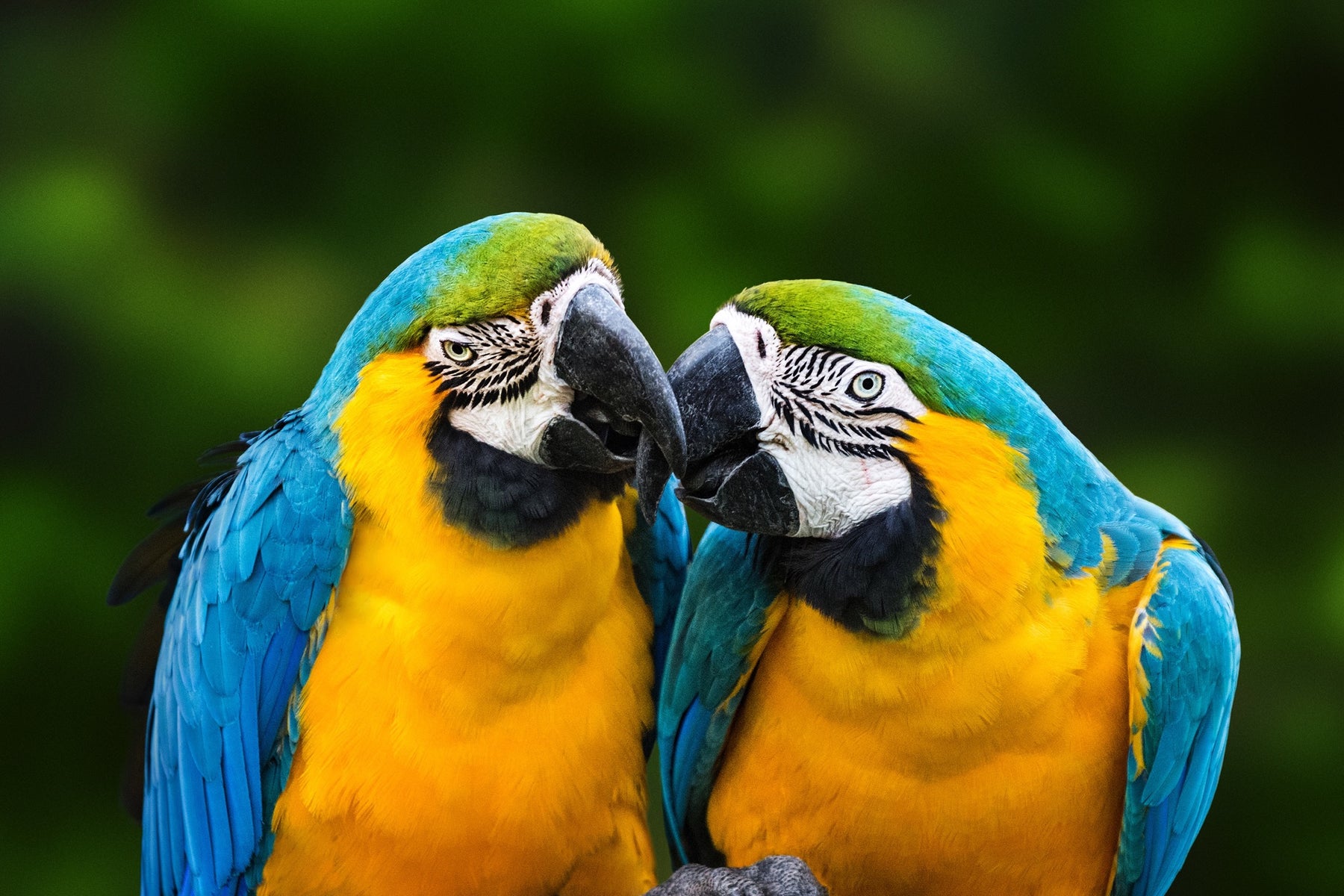
Understanding the Importance of Interaction for Parrots: A Guide to Happy Feathers
Parrots, with captivating personalities, have long been cherished as beloved companions by bird lovers around the world. These intelligent creatures thrive on social interaction, and meeting their needs for engagement is crucial for their well-being. Today, I would like to explore the importance of interaction for parrots and provide insights into how to create a stimulating environment that fosters their happiness and health.
The Social Nature of Parrots
Parrots are highly social creatures in the wild, living in flocks that provide them with companionship, security, and opportunities for learning and play. This social structure is deeply ingrained in their instincts and remains a fundamental aspect of their behavior even in captivity.
The Importance of Human Interaction
When parrots are kept as pets, their human caregivers become their flock mates. Regular interaction with humans is essential for fulfilling their social needs and preventing boredom and loneliness. Without adequate stimulation, parrots can develop behavioral issues such as feather plucking, excessive vocalization, and aggression, which many owners without experience can face.
Building Trust and Bonding
Establishing trust is key to fostering a strong bond with your parrot. Spend quality time with your feathered friend, talking to them, offering treats, and engaging in activities together. Patience and consistency are crucial, especially when building trust with a new bird or one that has experienced trauma or neglect in the past. I was lucky enough to gain the trust of my Amazon, Buddy, within two months time of constantly being in his room and engaging with him, however, it can take much longer for other birds, sometimes years!
Enrichment Activities
Providing enrichment activities is vital for keeping your parrot mentally stimulated and physically active. Offer a variety of toys, puzzles, and foraging opportunities to challenge their intellect and encourage natural behaviors like exploration and problem-solving. Rotating toys regularly and introducing new ones will prevent boredom and maintain their interest. If your bird is shy around new toys, carriers, or harnesses, try placing the item in their visual field and give them the opportunity to say when they want to explore it. This can take time as well! Do not ever force your bird to interact with something they are afraid of.
Communication and Training
Parrots are incredibly intelligent and can learn a wide range of behaviors through positive reinforcement training. Teach your parrot simple commands, tricks, and games, rewarding them with praise and treats for their efforts. This not only provides mental stimulation but also strengthens the bond between you and your feathered companion. Every bird's "high-value treat" will look a little different. As an example, my parrot LOVES when I clap and cheer for things he does, and he will continue to do the action with this praise.
Respect Individual Preferences
Every parrot has its own unique personality and preferences when it comes to interaction. Some may enjoy cuddling and physical contact, while others prefer to be admired from a distance. Pay attention to your bird's body language and vocalizations to understand their likes and dislikes, and respect their boundaries accordingly. Parrots will typically only bite when they feel threatened or afraid. They usually do not attack out of pure aggression. If you are struggling with bites, try to assess your surroundings. Are you wearing a new shirt or sweater? Is the color of your clothing different? What sounds are on the TV or radio?
I hang out with Buddy in my office all day, and I remember when he first started warming up to me, he was triggered by anything paper. As you can imagine, this was fun in an office setting! I learned to make sure we had distance before picking up anything made of paper and avoided bringing any of these items close to him.
Conclusion
In conclusion, interaction is vital for the well-being of pet parrots. By providing social engagement, enrichment activities, and positive reinforcement training, you can ensure that your feathered friend leads a fulfilling and happy life. Remember to be patient, observant, and responsive to your parrot's needs, and you'll be rewarded with a deep and rewarding bond that lasts a lifetime.

